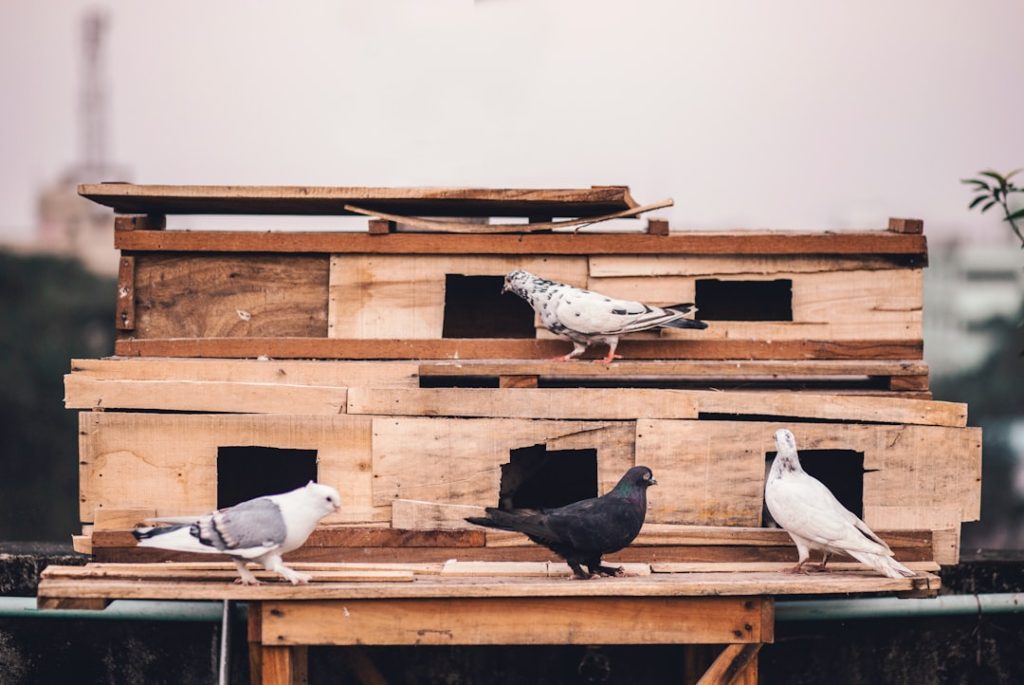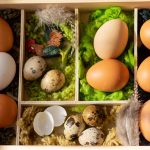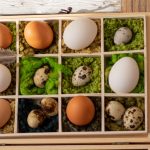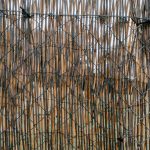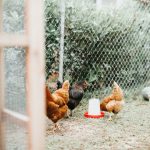Ensuring adequate shade and ventilation for poultry is essential for their health and well-being, particularly during hot and humid weather. Poultry are prone to heat stress, which can cause various health problems and even mortality if not properly managed. Providing sufficient shade through trees, shrubs, or artificial structures like shade cloth or umbrellas helps protect birds from direct sunlight and reduces the risk of heat stress.
Proper ventilation in coops and housing areas is crucial for maintaining a comfortable and healthy environment. Good airflow removes excess heat and moisture, prevents the accumulation of harmful gases, and reduces the risk of respiratory issues. Regular assessment and adjustment of ventilation systems are necessary to ensure optimal air circulation.
The layout and location of poultry housing also play a significant role in maintaining a comfortable environment. Placing coops or shelters in areas with natural airflow and good cross-ventilation helps keep the air fresh and cool. Orienting housing to take advantage of prevailing winds can improve air circulation and reduce heat stress risk.
Providing access to elevated roosting areas allows birds to catch breezes and avoid direct contact with hot ground surfaces, helping them stay cooler. By implementing these measures to provide adequate shade and ventilation, poultry owners can help ensure their birds remain comfortable and healthy throughout the year, especially during the hottest months.
Table of Contents
- 1 Monitoring water intake and ensuring access to clean water
- 2 Protecting against heat stress and sunburn
- 3 Controlling pests and parasites
- 4 Adjusting feeding schedule and diet
- 5 Implementing dust baths and natural remedies
- 6 Regular health check-ups and monitoring for signs of illness
- 7 FAQs
- 7.1 What are some common health issues for chickens in the summer?
- 7.2 How can I prevent heat stress in my chickens during the summer?
- 7.3 What are some signs of dehydration in chickens?
- 7.4 How can I protect my chickens from parasites and diseases in the summer?
- 7.5 What should I feed my chickens during the summer to keep them healthy?
Key Takeaways
- Providing adequate shade and ventilation is crucial to prevent heat stress in animals.
- Monitoring water intake and ensuring access to clean water is essential for maintaining hydration in animals during hot weather.
- Protecting against heat stress and sunburn can be achieved by providing shelter and applying sunscreen to vulnerable areas.
- Controlling pests and parasites is important to prevent discomfort and potential health issues in animals.
- Adjusting feeding schedule and diet to accommodate for increased water intake and decreased appetite during hot weather is necessary for maintaining proper nutrition in animals.
- Implementing dust baths and natural remedies can help animals maintain healthy skin and coat during hot weather.
- Regular health check-ups and monitoring for signs of illness are important to catch and address any health issues early on.
Monitoring water intake and ensuring access to clean water
Water Requirements and Dehydration Risks
Poultry have a high water requirement, and they can quickly become dehydrated if they do not have access to an adequate water supply. During hot weather, birds may drink more water than usual to stay cool and maintain their body temperature.
Maintaining Clean and Accessible Water Sources
It’s essential to regularly check water levels and refill containers as needed. Additionally, it’s important to regularly clean waterers to prevent the buildup of algae, bacteria, and other contaminants that can compromise water quality. Providing multiple water sources throughout the housing area can also help ensure that all birds have access to water, especially in larger flocks where competition for resources may be higher.
Choosing the Right Waterer for Your Poultry
Choosing the right type of waterer can help ensure that birds have easy access to water and reduce the risk of spillage or contamination. For example, nipple waterers or automatic waterers can help keep water clean and prevent wastage, while also reducing the risk of wet litter in the coop. By monitoring water intake, ensuring access to clean water, and choosing appropriate waterers, you can help prevent dehydration and ensure that your poultry remain healthy and comfortable during hot weather.
Protecting against heat stress and sunburn

Heat stress and sunburn are common concerns for poultry during hot weather, but there are several measures you can take to protect your birds from these risks. Heat stress occurs when birds are unable to dissipate excess body heat, leading to a range of health issues such as reduced egg production, decreased feed intake, and even death in severe cases. To protect against heat stress, it’s important to provide adequate shade, ventilation, and access to cool drinking water, as mentioned previously.
Additionally, you can help birds stay cool by providing misters or sprinklers in the housing area, which can help lower ambient temperatures and provide relief from the heat. In addition to heat stress, poultry are also at risk of sunburn, especially on areas with less feather coverage such as combs, wattles, and bare skin. To protect against sunburn, it’s important to provide ample shade in outdoor areas where birds may spend time during the day.
Applying sunscreen or aloe vera gel to exposed areas can also help protect against sunburn and soothe any existing irritation. Furthermore, providing dust baths with fine sand or diatomaceous earth can help birds keep their feathers clean and healthy, which can provide some natural protection against sunburn. By taking these measures to protect against heat stress and sunburn, you can help ensure that your poultry remain comfortable and healthy during hot weather.
Controlling pests and parasites
Pests and parasites such as mites, lice, and flies can be a major nuisance for poultry, especially during hot weather when populations tend to increase. These pests can cause a range of health issues for birds, including irritation, stress, decreased egg production, and even the transmission of diseases. To control pests and parasites, it’s important to implement a comprehensive pest management plan that includes regular cleaning and maintenance of the coop or housing area.
This includes removing old bedding, cleaning surfaces thoroughly, and applying appropriate pest control products as needed. In addition to regular cleaning, it’s important to regularly inspect birds for signs of pests or parasites, such as feather damage, skin irritation, or decreased activity. If pests are detected, it’s important to take immediate action to address the issue and prevent further infestation.
This may include treating birds with appropriate pest control products, such as dusts or sprays, as well as treating the housing area to eliminate pests at their source. Additionally, implementing natural pest control methods such as diatomaceous earth or herbal repellents can help reduce reliance on chemical treatments while still effectively managing pests. By controlling pests and parasites through regular cleaning, inspection, and appropriate treatment methods, you can help ensure that your poultry remain healthy and comfortable during hot weather.
Adjusting feeding schedule and diet
During hot weather, it’s important to adjust your poultry’s feeding schedule and diet to account for changes in appetite, energy expenditure, and nutrient requirements. High temperatures can reduce birds’ appetite and feed intake, which can impact their overall health and productivity if not properly managed. To address this, consider offering smaller, more frequent meals throughout the day rather than large meals all at once.
This can help ensure that birds have access to fresh feed when they are most likely to eat, while also reducing the risk of feed spoilage in hot weather. In addition to adjusting feeding schedules, it’s important to consider the composition of your poultry’s diet during hot weather. Providing a balanced diet that meets birds’ nutritional needs is crucial for maintaining health and productivity year-round.
During hot weather, consider increasing the protein content of the diet to support birds’ energy needs and promote feather growth. Additionally, providing access to fresh fruits and vegetables can help supplement essential vitamins and minerals while also providing additional hydration. It’s important to regularly assess birds’ body condition and adjust feeding practices as needed to ensure that they are receiving adequate nutrition despite changes in appetite.
By adjusting feeding schedules and diet composition during hot weather, you can help ensure that your poultry remain healthy and productive year-round.
Implementing dust baths and natural remedies

Encouraging Dust Bathing Behavior
To encourage dust bathing behavior, provide a designated area filled with fine sand or diatomaceous earth where birds can freely bathe throughout the day.
Natural Pest Control Methods
Additionally, consider adding herbs or essential oils with natural pest-repellent properties to the dust bath area to further support pest control efforts. In addition to dust baths, implementing natural remedies such as herbal supplements or essential oils can help support poultry health during hot weather. For example, adding garlic or apple cider vinegar to birds’ drinking water can help boost immune function and support overall health while also acting as a natural pest repellent.
Supporting Digestive Health and Immunity
Similarly, providing access to fresh herbs such as oregano or thyme can help support digestive health and provide natural antioxidant properties. It’s important to research appropriate dosages and application methods for natural remedies to ensure their safety and effectiveness for poultry.
A Holistic Approach to Poultry Health
By implementing dust baths and natural remedies as part of your poultry management practices during hot weather, you can help support overall health while reducing reliance on chemical treatments.
Regular health check-ups and monitoring for signs of illness
Regular health check-ups are crucial for monitoring poultry health year-round but are especially important during hot weather when birds are at increased risk of heat stress, dehydration, and pest-related issues. It’s important to regularly inspect birds for signs of illness or injury such as lethargy, decreased appetite, abnormal droppings, or changes in behavior. Additionally, monitoring birds’ body condition regularly can help identify any changes in weight or muscle mass that may indicate underlying health issues.
In addition to regular visual inspections, consider implementing routine health checks with a veterinarian or experienced poultry professional who can provide expert guidance on maintaining bird health during hot weather. This may include regular fecal testing for parasites, bloodwork to assess overall health status, or vaccinations against common diseases prevalent in your area. Additionally, it’s important to stay informed about common poultry diseases and their symptoms so that you can quickly identify any signs of illness in your flock.
By implementing regular health check-ups and monitoring for signs of illness during hot weather, you can help ensure that any health issues are promptly addressed before they escalate into more serious problems. In conclusion, managing poultry during hot weather requires careful attention to a range of factors including shade and ventilation provision; monitoring water intake; protecting against heat stress; controlling pests; adjusting feeding schedules; implementing dust baths; natural remedies; regular health check-ups; monitoring for signs of illness. By implementing these measures effectively you will ensure that your flock remains healthy and comfortable even during extreme temperatures.
If you’re looking for tips on how to keep your chickens healthy in the summer, you might also be interested in learning about the best location for your chicken coop. Check out this article for advice on where to place your coop to ensure the health and well-being of your flock.
FAQs
What are some common health issues for chickens in the summer?
Some common health issues for chickens in the summer include heat stress, dehydration, and increased risk of parasites and diseases.
How can I prevent heat stress in my chickens during the summer?
To prevent heat stress in chickens during the summer, provide plenty of shade, good ventilation, and access to cool, fresh water at all times. You can also consider using fans or misters to help keep the coop and run area cool.
What are some signs of dehydration in chickens?
Signs of dehydration in chickens include lethargy, panting, pale combs and wattles, and decreased egg production. It’s important to address dehydration promptly by providing access to clean, cool water and, if necessary, electrolyte supplements.
How can I protect my chickens from parasites and diseases in the summer?
To protect chickens from parasites and diseases in the summer, practice good coop hygiene, regularly clean and inspect the coop and nesting boxes, and use natural or chemical treatments to control parasites. Additionally, provide a balanced diet and monitor the flock for any signs of illness.
What should I feed my chickens during the summer to keep them healthy?
During the summer, it’s important to provide chickens with a balanced diet that includes plenty of fresh fruits and vegetables, as well as access to grit for digestion. Additionally, consider offering treats like frozen fruits and vegetables to help keep chickens cool and hydrated.
Meet Walter, the feathered-friend fanatic of Florida! Nestled in the sunshine state, Walter struts through life with his feathered companions, clucking his way to happiness. With a coop that’s fancier than a five-star hotel, he’s the Don Juan of the chicken world. When he’s not teaching his hens to do the cha-cha, you’ll find him in a heated debate with his prized rooster, Sir Clucks-a-Lot. Walter’s poultry passion is no yolk; he’s the sunny-side-up guy you never knew you needed in your flock of friends!

